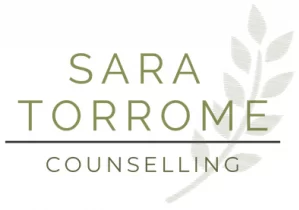Do you catch yourself thinking, "I'm not good enough" or "I always mess things up"? Perhaps you mentally replay mistakes or criticise yourself in ways you'd never speak to someone else. As a counsellor in Beaconsfield, I've worked with many clients who are trapped in patterns of harsh self-criticism that erode their confidence and wellbeing over time.
Negative self-talk is that internal critic that comments on your actions, appearance, and worth, often in ways that are unfair, unkind, and ultimately harmful. While we all experience self-doubt at times, persistent negative inner dialogue can contribute to anxiety, depression, and a diminished sense of self-worth.
The impact of these thought patterns shouldn't be underestimated. Your internal voice shapes how you feel about yourself, how you approach challenges, and even how you relate to others. When that voice is consistently critical, it creates a lens through which you view your entire life.
So, how do we begin to shift these patterns? The first step is awareness. Start by simply noticing your self-talk without judgement. What triggers your inner critic? What phrases do you use repeatedly? This awareness creates a small but crucial gap between your thoughts and your identification with them.
Once you've developed this awareness, you can begin to question your negative thoughts. Ask yourself: Is this thought actually true? Would I say this to someone I care about? What evidence contradicts this belief? This process helps you recognise that thoughts aren't facts—they're mental habits that can be changed.
Try reframing your self-talk with balanced, compassionate language. Instead of "I'm a failure," try "I'm struggling with this particular task, but I've succeeded at similar challenges before." Rather than "Nobody likes me," consider "This social situation is difficult, but I have meaningful connections in my life."
Building a practice of self-compassion is also essential. This means treating yourself with the same kindness you would offer a good friend. When you make a mistake or face a setback, acknowledge the difficulty without harsh judgement. Remember that imperfection is part of the shared human experience.
Creating new thought patterns takes time and consistent effort. Consider keeping a journal to track your negative thoughts and practice reframing them. You might also try visualising your inner critic as separate from yourself—perhaps as a character whose unhelpful advice you can acknowledge and then set aside.
Remember, the goal isn't to eliminate all negative thoughts but to develop a more balanced inner dialogue. A healthy relationship with yourself includes acknowledging difficulties and disappointments while also recognising your strengths, efforts, and inherent worth.
If you're finding it challenging to shift these patterns on your own, I'm here to help. As a counsellor specialising in self-esteem and thought patterns, I offer a space where you can explore the roots of your self-criticism and develop new ways of relating to yourself. Together, we can work to quiet your inner critic and strengthen your inner advocate—the voice that encourages, supports, and believes in you.
